Description
Emotional Development and Intellectual Disability: A guide to understanding emotional development and its implications for practice recognises the complexity and importance of emotions and emotional development in the needs and lives of people with intellectual disabilities (learning disabilities), and in their care and support. The book combines research, assessment and practice by a team of experts and advisers in the field. This collaboration facilitates for an exploration of this complex topic from a number of positive perspectives, including, emotional development as an adaptive behaviour, as a support need, and as a quality of life domain. With insights into the intertwined connection between the emotions and the brain, the book systematically sets out theoretical frameworks, themes of emotional development, diagnostics and support, before considering whether it is possible to provide an integrative model as a basis for theory, everyday practice and research. Emotional Development and Intellectual Disability: A guide to understanding emotional development and its implications for practice is relevant to everyone working in the field of intellectual disability as a key reference for practice, education, policy-making and research.
Sample
Click the image below to open the file in a page turner:
Authors
Jac de Bruijn is an independent consultant for healthcare and society www.youcare.site with more than 30 years of experience in healthcare, especially for people with a disability. He is a former member of the Board of Directors of Stichting Prisma and was previously head of treatment and a mental health psychologist. He worked as a lecturer at the Erasmus Medical Center, and is now affiliated as a guest lecturer. He published several books together with others and specialises in methods and interventions for people with intellectual disability. He is passionate about inclusion, inclusive research and ethics of care.
Jolanda Vonk studied educational science at the Free University of Amsterdam (VU, cum laude). She works as a senior behavioral scientist at ORO/Lore in the Netherlands. She has worked in the field of people with ID for more than 30 years as a healthcare psychologist, remedial educationalist, sexologist, supervisor and coach. Jolanda also works as a consultant for the Centre of Expertise and Consultation (CCE), a national organization in the Netherlands that is deployed on demand for complex problems of people with intellectual disability or mental health problems.
Ad van den Broek has worked as a healthcare psychologist in the care of people with intellectual disabilities. Today he works at FORTIOR, which he founded in 2006 and for which he is now responsible together with Catja van den Broek. His interest is mainly in the emotional and personality development in the context of the developmental dynamic model and in methods in the field of relationship, contact. communication and support.
Brian Twint studied social work at the Amsterdam University of Applied Sciences and after a period in youth services has been working for years as a personal supervisor and project leader in the field of intellectual disability. Twint is the original designer of the ‘Affectief Bewuste Benadering’ (Affective Conscious Approach), initiator of the Expertise Centre Intellectual Disability in the Netherlands, and author of several books about and for people with intellectual disabilities.
Content
Part I – Theoretical frameworks
- Emotional development and intellectual disability: introduction to a dynamic concept
- Neurobiological aspects of emotional development
- Seven stages of emotional development, from birth to adulthood
- Emotional development, stress and adaptation
- The relationship between cognition and emotion in people with an intellectual disability: a neurocognitive approach
Part II – Themes of emotional development
- Development of emotion regulation and the role of the attachment relationship
- Emotional Development in Autism Spectrum Disorders
- Sexual and emotional development in people with intellectual disabilities
- Emotional development and mental health disorders
- The systematic and family approach in relation to emotional development and intellectual disability
Part III – Diagnostics and support
- Emotional development and assessment in persons with an intellectual disability
- The Scale of Emotional Development – Short
- Scale for Emotional Development for people with intellectual disabilities (SED-R2) and translation into (treatment and) support
- The SED-R² Colour Profile
- What works?! Cross-fertilisation between forensic psychiatry and care for people with mild intellectual disabilities
- Emotional development and methodical support for people with intellectual disabilities
- The importance of social relationships for persons with an intellectual disability: emotion regulation and how ICT can support parents and caregiver
- Working with a disorganised attached child: Individual child psychotherapy embedded within a mentalising network.
- The wire between client and caregiver. A metaphor on emotional and social development
Part IV – Review
- Epilogue: a constructive description of emotional development
- Closure statements Advisory Board
Details
Published by Pavilion Publishing and Media Ltd
Publication: 12th July 2021
ISBN: 9781914010583

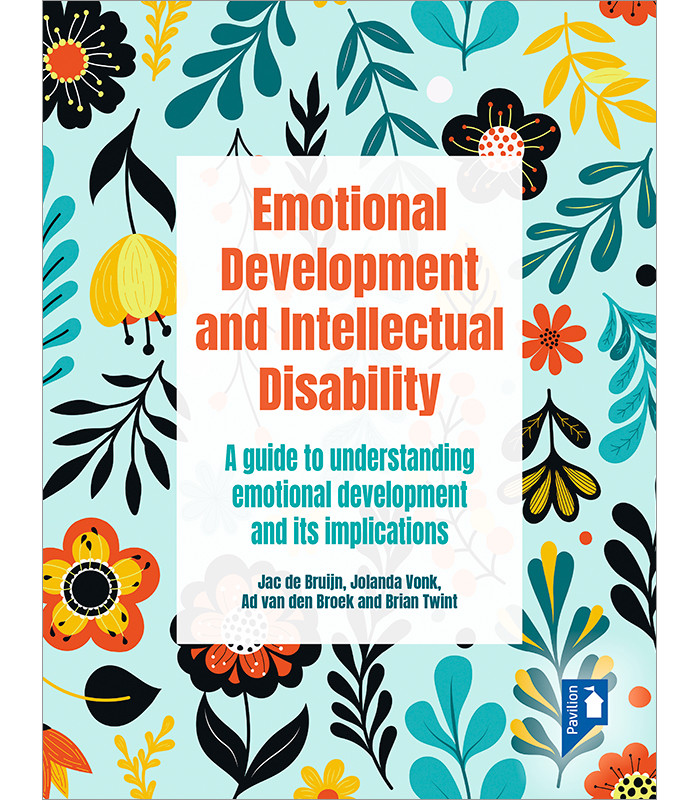
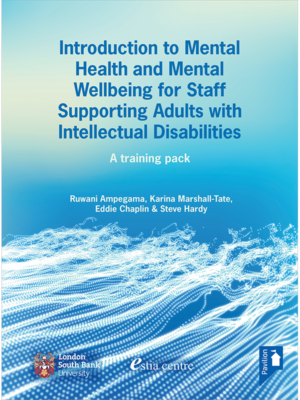
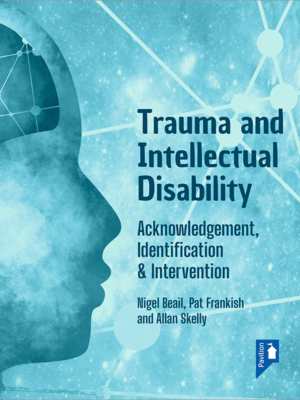
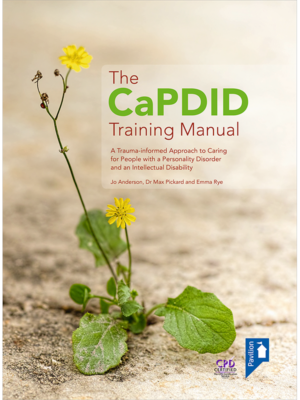
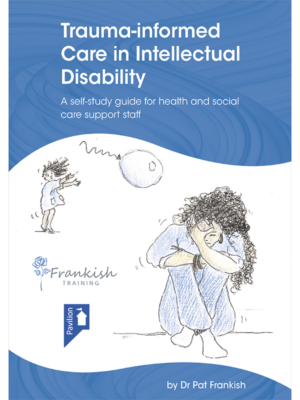
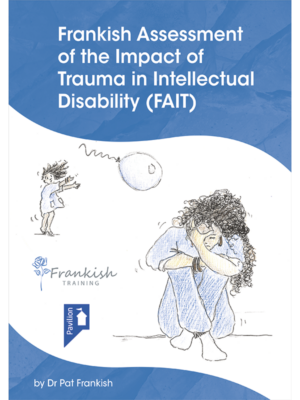
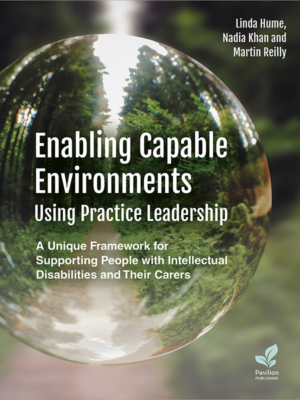
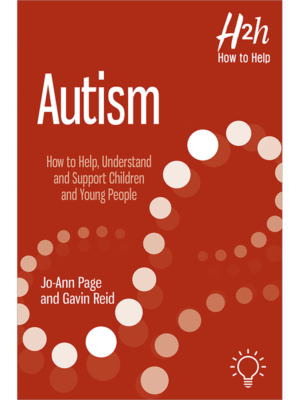
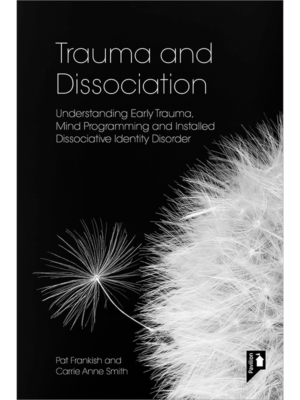
Dr Naomi Fairweather, Clinical Psychologist, Sussex Partnership NHS Foundation Trust. Reviewed in International Journal of Positive Behavioural Support –
This progressive text offers a blueprint for a move away from merely assessing and recording the cognitive capacities of individuals with intellectual disabilities (ID) to a more holistic consideration of the person, including their emotional development, behaviour and the resulting implications for support needs and quality of life. It is divided into four parts, the first of which outlines key theoretical frameworks in relation to emotional development.
Chapter 1 introduces emotional development as a dynamic and often-overlooked concept and seeks to clarify what the term means. The chapter questions whether the process of emotional development is the same for people with and without intellectual disabilities and if the former case means emotional development is impaired, delayed or both. Overlaps between emotional development and other aspects of a person’s development are explored, and consideration is given to the impact that context and personal history have on the way emotions are experienced by people with and without ID.
The authors discuss the neurobiological aspects of emotional development in Chapter 2, highlighting that ‘the discrepancy between emotional and cognitive development can leave someone vulnerable to behavioural and psychiatric disorders’ and that ‘adapting the environment to the person’s basic emotional needs is essential to supporting health and quality of life’ (p43).
Chapter 3 uses Došen’s (2014) developmental dynamic approach as a framework to describe the seven stages of emotional development, from birth to adulthood. According to Došen’s theory, a person (with or without ID) will experience wellbeing if their cognitive, social and emotional development are balanced, and it is rare for emotional development to be more advanced than cognitive development.
The text explores emotional development, stress and adaptation in Chapter 4, with a particular focus on the impact of stress on executive functions including emotion-regulation, motivation, impulse control and cognitive flexibility. Chapter 5 takes a neurocognitive approach to further examine the relationship between cognition and emotion in people with ID, concluding that ‘the distinction between “being able” and “being able to cope” is not only vague but actually a false dichotomy’ (p109).
Part two focuses on themes of emotional development. Within this, Chapter 6 uses case studies to explore the development of emotion regulation and the role of attachment relationships in people with ID, and Chapter 7 focuses on emotional development in the context of autism. The chapter highlights the impact of autism on social development, noting that emotional development is often more uneven in autistic adults with ID compared to adults with ID only, and discusses implications for behavioural support.
Chapter 8 examines the historically neglected topic of sexual and emotional development in people with ID. It stresses that while delay or impairment in emotional development is likely to influence how sexual feelings and behaviours are experienced and expressed, sexual development is not linked to specific cognitive, social or emotional developmental levels thus people with ID will usually develop sexual desires and behaviours in line with chronological age.
The authors explore interactions between ID and mental health, including the increased prevalence of poor mental health in people with ID in Chapter 9. This is followed by an introduction to systemic and family perspectives on emotional development in the context of ID and the implications for intervention and support in Chapter 10.
Part three focuses on assessment and support, with Chapter 11 providing a broad discussion of emotional development in people with ID and an overview of measures used to assess emotional development. Chapter 12 introduces the Scale of Emotional Development–Short (SED-S), an instrument based on Došen’s model of emotional development that comprises 200 yes/no questions covering eight developmental domains. The updated version, the Scale of Emotional Development– Revised2 (SED-R2), and its translation into interventions and support, are covered in Chapter 13. The subsequent chapter provides an overview of the SED-R2 colour profile, which uses colours to support the process of estimating developmental levels and has been found to be particularly useful in promoting team discussions.
The text explores overlaps between forensic services and care for people with mild ID in Chapter 15. The authors highlight that treatment shortfalls for those presenting with a high risk of offending resulting from emotional development are not being sufficiently considered.
Chapters 16 and 17 cover the application of Došen’s model to support the emotional development of people with ID and the importance of social relationships, including the use of technology to promote the development of emotion regulation skills. Chapter 18 explores coaching the networks of people with ID, embedding the practice of mentalisation into everyday life. The metaphor of ‘the thread’ is introduced in Chapter 19 to explain and represent the different stages of emotional and social development.
While theoretically dense in places, the key principles discussed in this comprehensive text are likely to be useful to anyone working with or supporting people with ID.
Oili Sauna-aho, PhD, Clinical Neuropsychologist, Director of Expert and Developmental Services KTO, Support and Expert Center for Persons with Intellectual Disabilities, Paimio, Finland –
The book “Emotional Development and Intellectual Disability – A guide to understanding emotional development and its implications” gives a thorough description about what emotional development means and why it is important to us working in the field of intellectual disabilities (ID). The book gives a new and an inspiring perspective to understand and support persons with ID.
Emotional development is not a new concept, but it has not been a central interest within the practice of ID. The professionals used to assess intellectual and adaptive abilities of the person with ID, but when the person has challenging behaviour or challenging situations in daily life this is often not enough. Looking at the emotional development gives a new and positive perspective to understanding challenging behaviour and tools to improve the life of the person with ID and their caregivers.
The seven stages of emotional development and two different scales to assess it (SEO-R2 and SED-S) are introduced in the book. Dutch child psychiatrist Anton Došen has had a significant role to bring this concept into practice. The theoretical framework is based on well-known theories of a child’s psychological development by Freud, Mahler, Erikson, Bowler and Stern. In the book there are also many interesting and important themes e.g. autism spectrum, sexual development, the role of attachment, forensic psychiatry and their connections to emotional development and ID. The writers of the book are all well-known scientists and professionals in the field, and the articles are easy to read even though they contain a lot of scientific information.
The book describes practical methods to assess emotional development and how to coach the network of the person with ID. The assessment itself can already be an intervention when caregivers are interviewed on different aspects of the person’s behaviour in daily life. During the interview caregivers may have new insights why some issues are so important to the person and why he or she is so challenging. If the emotional development is far beyond the intellectual development and chronological age, the demands to the person’s ability to control emotions and behaviour can be too high. Meeting emotional needs can be the key to this.
Emotional development seems to be the missing piece in understanding and supporting the person with ID. Assessing emotional development can also help to make better psychiatric diagnosis and give better tools to support the persons and their caregivers in daily life. The Book is the first of this theme in English and it should be “the must” for everyone working in the field of ID!